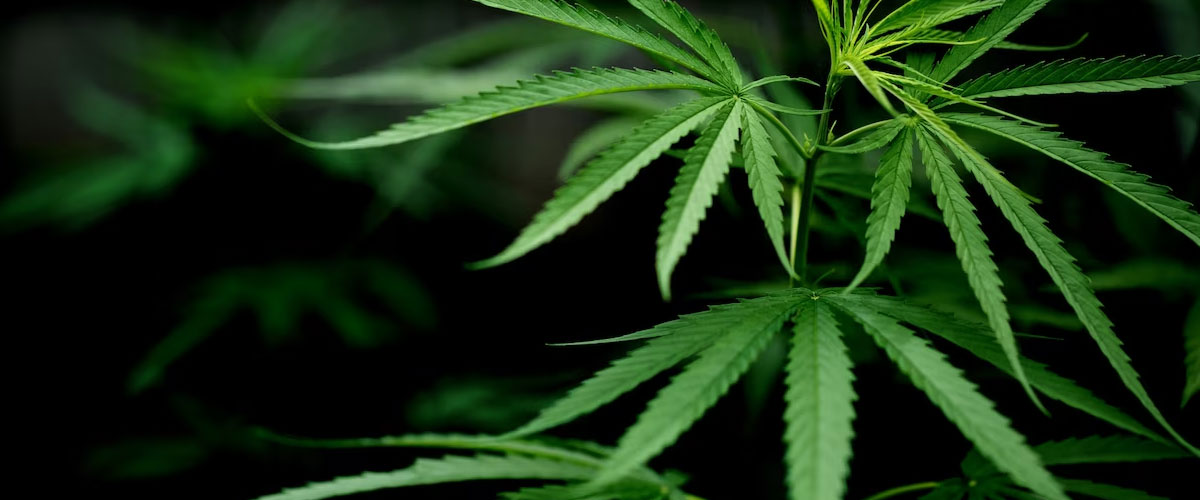- You have no items in your shopping cart
- Continue Shopping

CBD and THC are two compounds that have gained significant attention in recent years due to their potential health benefits and legal status. Many people are curious about these compounds and want to know how they differ. In this article, we will explore the distinctions between CBD and THC, shedding light on their chemical composition, effects on the body, legal status, medical applications, side effects, drug testing implications, and considerations when choosing between them.
What Are CBD and THC?
To begin, let’s clarify what CBD and THC are. Both of these compounds are derived from the cannabis plant, but they have distinct properties.
CBD (Cannabidiol):
- CBD is a non-psychoactive compound, meaning it doesn’t produce a “high” when consumed.
- It is one of the most abundant cannabinoids in the cannabis plant.
- CBD is typically extracted from hemp, a variety of cannabis that contains low levels of THC.
- It has been used for various medicinal purposes for centuries, and its popularity has surged in recent years.
THC (Tetrahydrocannabinol):
- THC is the psychoactive compound in cannabis responsible for the euphoric feeling often associated with marijuana use.
- It is found in higher concentrations in marijuana plants compared to hemp.
- THC binds to cannabinoid receptors in the brain and central nervous system, leading to altered perception and cognitive function.
- Unlike CBD, THC is often subject to strict legal regulations in many places.
Chemical Composition and Effects
CBD and THC have different chemical structures, which result in distinct effects on the body when consumed.
Chemical Differences:
- CBD and THC share the same chemical formula (21 carbon atoms, 30 hydrogen atoms, and 2 oxygen atoms), but their arrangement differs.
- The structural variation is responsible for their differing interactions with cannabinoid receptors in the body.
Psychoactive vs. Non-Psychoactive:
- The primary difference lies in their psychoactivity. CBD does not cause intoxication, while THC does.
- THC interacts with the CB1 receptors in the brain, leading to altered perceptions and feelings of euphoria.
- CBD has a more subtle effect on the endocannabinoid system, primarily interacting with CB2 receptors throughout the body.
Effects on the Body:
- CBD is known for its potential therapeutic properties, including pain relief, anxiety reduction, and anti-inflammatory effects.
- THC’s effects include relaxation, euphoria, increased appetite, and altered sensory perception.
- These differing effects make CBD and THC suitable for different purposes.
Legal Status
In Canada, both CBD and THC have seen significant shifts in legal status. Canada legalized recreational cannabis in 2018, allowing adults to purchase and possess both CBD and THC products. While CBD derived from hemp is widely accessible, the legal regulations for THC products vary by province and territory. Some regions have government-operated stores, while others allow private retailers, and the legal age for purchase and consumption ranges from 18 to 19. It’s essential to stay informed about the specific regulations in your area to ensure compliance when using CBD and THC products in Canada.
Medical Benefits
Both CBD and THC have potential medical applications, but their uses differ.
CBD’s Medical Uses:
- CBD is commonly used to manage various medical conditions, such as chronic pain, anxiety, epilepsy, and insomnia.
- It is also being studied for its potential anti-inflammatory and neuroprotective properties.
THC’s Medical Uses:
- THC is primarily prescribed for its pain-relieving properties, making it valuable for patients with chronic pain conditions.
- Additionally, it can help alleviate nausea and stimulate appetite, making it useful for cancer patients undergoing chemotherapy.
Compare and Contrast:
While both compounds have medical benefits, CBD is favored for conditions where psychoactivity is unwanted, whereas THC may be preferred when its psychoactive effects can aid in symptom management.
Side Effects and Risks
Understanding the potential side effects and risks associated with CBD and THC is essential when considering their use.
CBD Side Effects:
- CBD is generally well-tolerated, with few reported side effects.
- Possible side effects include dry mouth, diarrhea, changes in appetite, and fatigue, but these are typically mild.
THC Side Effects:
- THC can cause more pronounced side effects, especially when taken in high doses.
- Common side effects include impaired coordination, anxiety, paranoia, and memory issues.
- Long-term, heavy THC use may lead to addiction or worsen pre-existing mental health conditions.
Risk Factors:
- CBD is considered safe and non-addictive, with a low potential for abuse.
- THC carries a higher risk of addiction and adverse mental health effects, especially in individuals with a predisposition to mental health disorders.
Drug Testing and CBD vs. THC
Drug testing is a concern for individuals using CBD and THC, as it can have legal and employment implications.
Drug Testing:
- Standard drug tests often look for THC metabolites, which can lead to a positive result if you’ve consumed THC-containing products.
- CBD products labeled as “THC-free” may still contain trace amounts, so be cautious if you’re subject to drug testing.
Legal Implications:
- A positive drug test for THC can have legal consequences, especially in regions where THC is strictly regulated.
- Be aware of the drug testing policies in your area and the THC content in any CBD or THC products you use.
Choosing Between CBD and THC
When deciding between CBD and THC, several factors should be considered.
Personal Considerations:
- Determine your specific needs and goals. Are you seeking relief from pain, anxiety, or other symptoms? Do you want to avoid psychoactivity?
- Consult with a healthcare professional for personalized guidance.
Dosage and Consumption Methods:
- Consider the appropriate dosage for your condition and the method of consumption that suits you best (e.g., oils, edibles, topicals, or inhalation).
Conclusion
In conclusion, understanding the differences between CBD and THC is crucial for making informed decisions about their use. While both compounds have potential health benefits, they vary in terms of psychoactivity, legality, medical applications, side effects, and risks. By carefully evaluating your individual needs and consulting with a healthcare provider, you can choose the compound and product that best aligns with your health and wellness goals.
After learning about the key differences, why not try CBD oil today and see some of the amazing benefits it provides!







